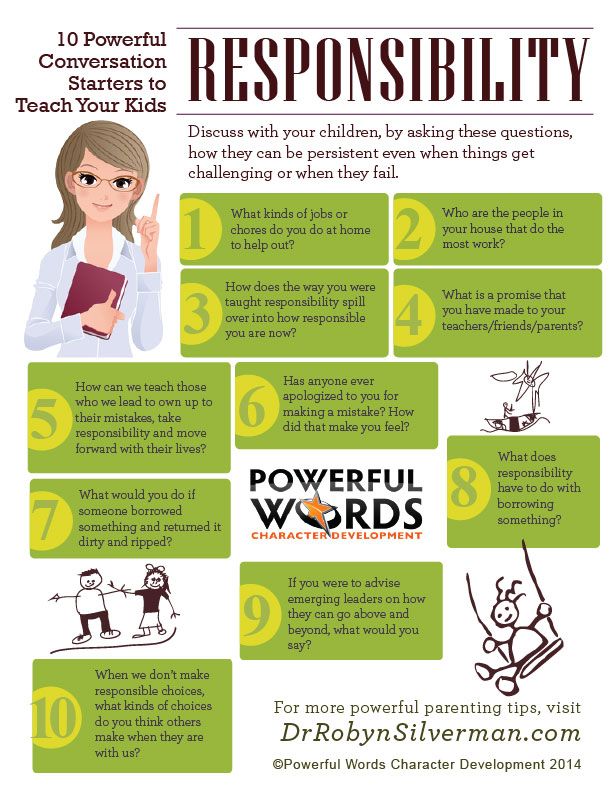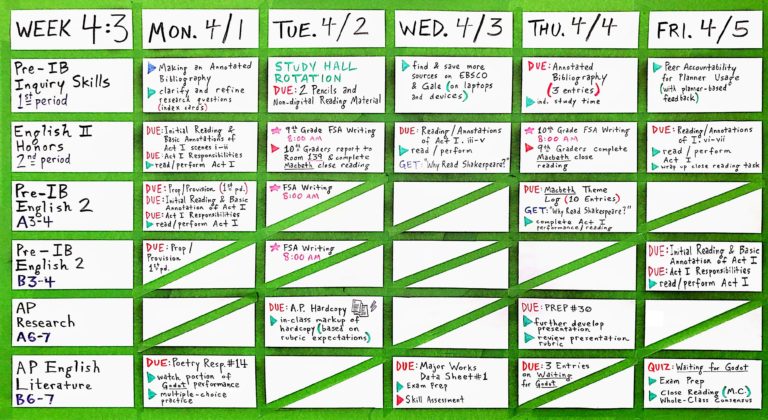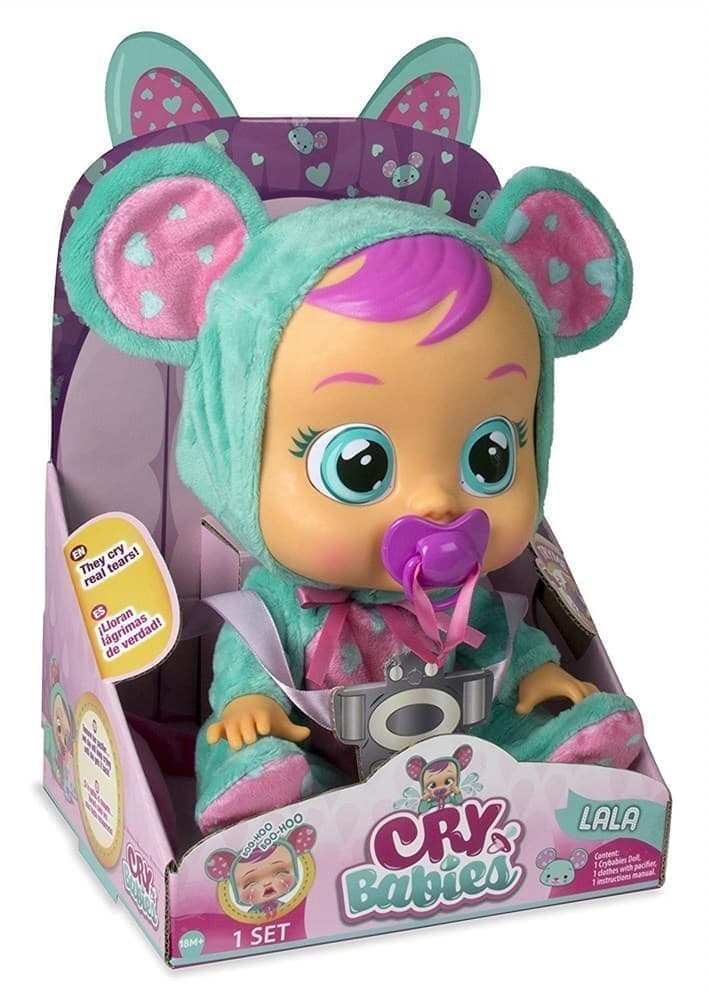How do i teach my child to be respectful
What Is Respect? Definition for Kids and 6 Highly Effective Ways To Teach
| Respect Definition For Kids | How To Teach Kids Respect | Frequently Asked Questions |
Respect is admiring or looking up to someone because that person has done something extraordinary or possesses impressive abilities. It is also an act of giving attention or showing care.
You are at a restaurant. A woman sitting at the next table snapped her fingers and yelled at the waiter,
“Hey, you brought the wrong dish. Why are you not listening? Now go and get me the right dish. NOW.”
What would you think of this person?
I don’t know about you, but I would think that she’s being very rude and disrespectful. Why does she think that she has the right to talk down to him like that?
Most people I know would not do such a thing to others, whether it’s their friends or someone they don’t know. However, some of them feel completely entitled to talk to their children that way. A mother would snap at her son,
“Hey, I told you not to do this. Why are you not listening? Go and take a time-out. NOW.”
See the irony in these two examples? Why is there such a big difference in how we treat others compared to how we treat our children?
So, the meaning of respect goes deeper than just saying “Yes, Sir”, “Yes, Madam” or being compliant.
The feeling of respect needs to come from within and you cannot force someone to respect you.
It’s easy to just define respect for kids. But explaining respect to a child involves more than just telling them its definition.
We cannot teach respect by being disrespectful to our children.
How To Teach Kids Respect
Here are 6 things you can do to get kids to listen to and respect parents.
1. Stay calm and don’t overreact when you think your child is being disrespectful
The other day, my daughter was eating cookies and she wanted to go into my room.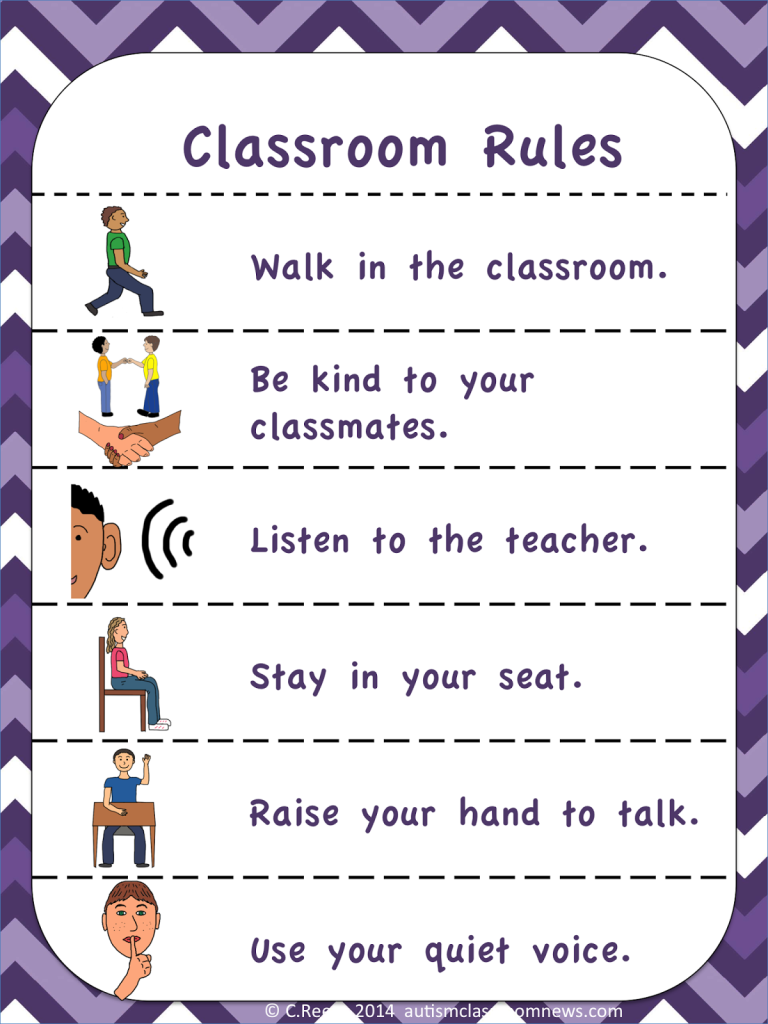 Crumbs came out of her mouth as she took every bite. I told her not to go into my room with the cookies.
Crumbs came out of her mouth as she took every bite. I told her not to go into my room with the cookies.
I repeated that request at every step she took on the 14-step staircase. I said it one more time when she was at my door. She ignored it and entered my room with cookies in her hands and crumbs on my floor.
I was angry. I exploded and yelled, “Didn’t you hear that I asked you not to come in with cookies?”
She looked at me, turned around, and left my room.
So what is the lesson?
That yelling and only yelling works with kids who don’t listen, right?
Wrong.
She didn’t listen to me because she couldn’t listen to me. I was not in front of her, making eye contact and ensuring she was paying attention to what I said.
Instead, I just sat at my desk and shouted my command, while she was fully immersed in tasting the yummy cookies. Any leftover focus was spent on making sure she didn’t fall down the stairs.
She simply couldn’t pay any attention to me until she entered the room and saw me.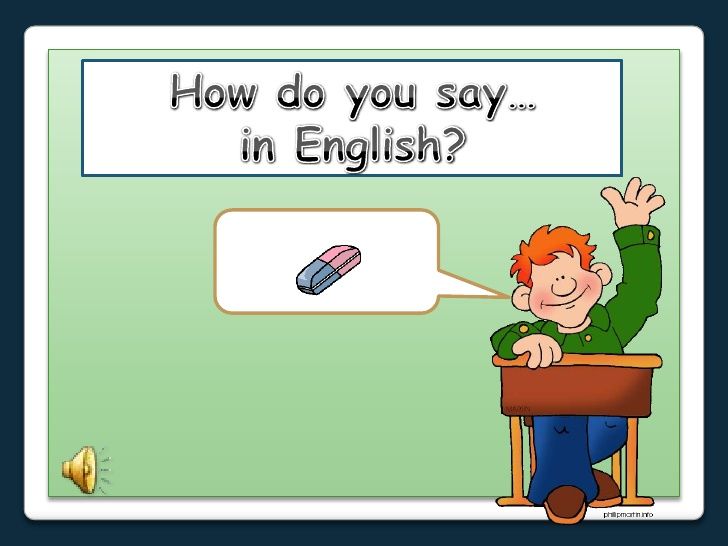
However, from my perspective, I thought she heard everything I said but ignored me. I thought she was purposely disrespecting me and my request.
So I was angry. My emotions took over. Instead of looking into why she acted that way, I yelled at her.
I was being disrespectful to her.
I was shouting to her from another room not caring whether I was interrupting what she was doing or not.
And when she didn’t meet my expectations, I acted rudely toward her.
I showed her that I only cared about my own needs. I showed her that when you were frustrated, you could be rude and disrespectful.
That was definitely the wrong message.
I showed her an example of disrespect.
I was not a good role model in having empathy and self-control. I was certainly not a good example of respect.
Granted, there are often situations where disrespectful kids really do outrageous or disrespectful things, but it could be because they don’t know any better at that age or they miss the cue.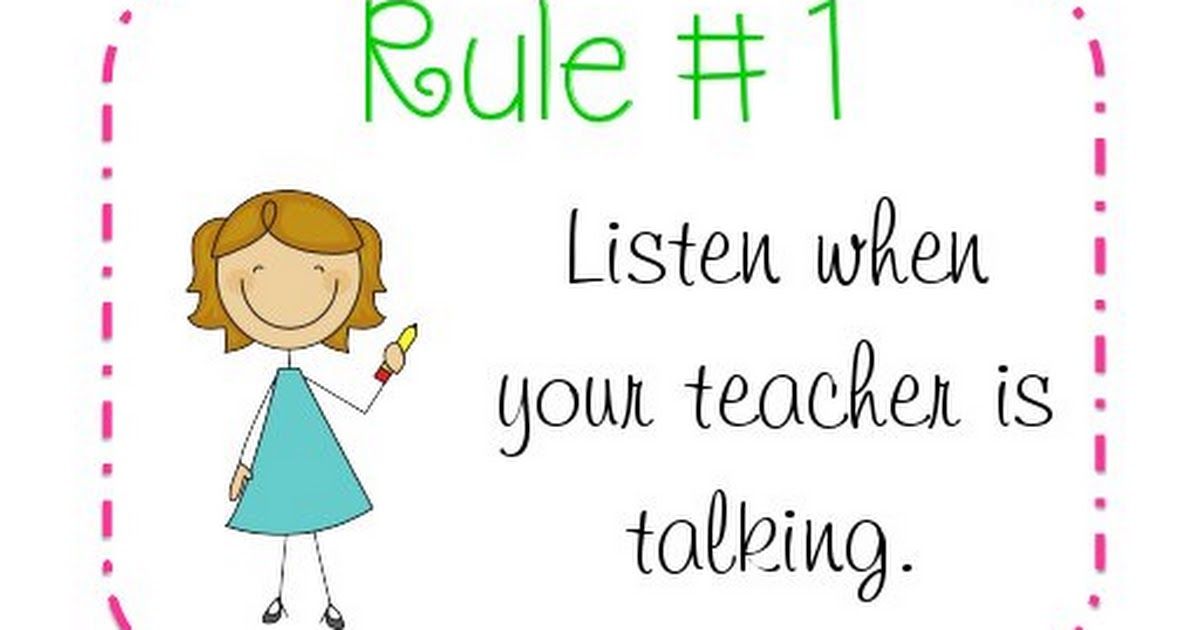
That’s where we, the parents, come in to teach them. Teaching respect to children cannot be done using a disrespectful manner.
To teach respect, first, we need to stay calm and stay in control. Identify if this is a real “disrespect” situation, a misunderstanding, a dysregulated toddler’s tantrum, or simply because the child hasn’t learned the proper response in such a situation.
2. Identify the cause for disrespect and focus on teaching problem-solving alternatives
When genuinely being disrespected, we should pay attention to the circumstance instead of going off on the child, “You are being disrespectful!”
Ask your child why they act that way.
Last weekend, my almost 4.5-year-old finally achieved a major “milestone”. She called me a bad mom.
She had never called me that before as we had never called her a bad girl. So she didn’t learn to say that until she heard her friends say it recently.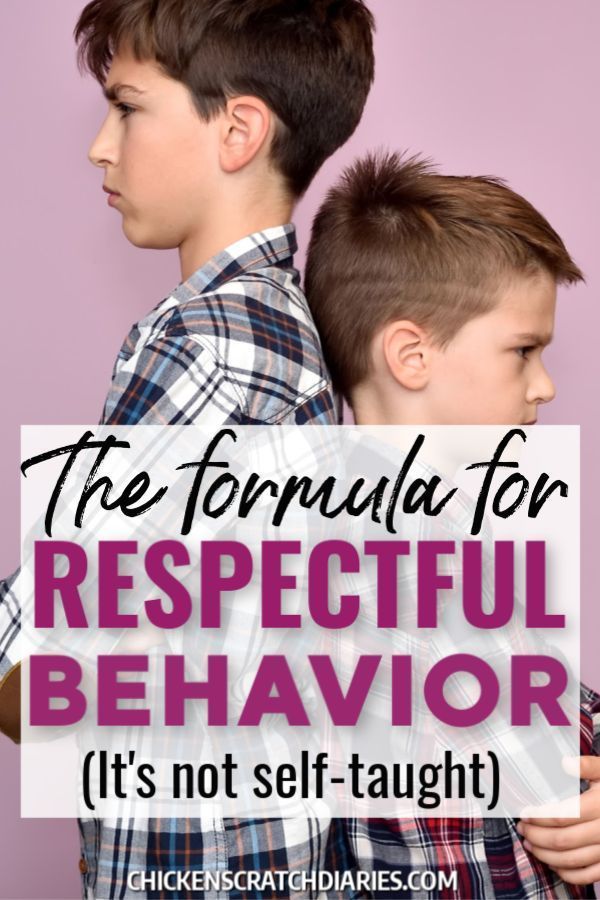
For most parents, that is a very disrespectful thing for a child to say.
Justifiably, many of them become upset or angry. They would reply, “How dare you! You are not allowed to talk to me that way. I’m your mother/father!”
These parents are upset. They are called names and they are hurt.
You may see these words as signs your child doesn’t respect you.
But what is the child’s intention when they say that?
Disrespectful kids usually say that because they are angry. Someone, and it’s usually you, hurt them. So, out of instinct, they want to hurt you back.
It is usually not malicious because kids (and grownups) cannot think straight when they are angry. They just reflexively want to fight back to protect themselves and in this case, they use hurtful words to do so.
I asked my daughter, “Why did you say that? Was it because you were angry?” She nodded.
“Were you angry because I didn’t let you have more cookies?” She nodded again.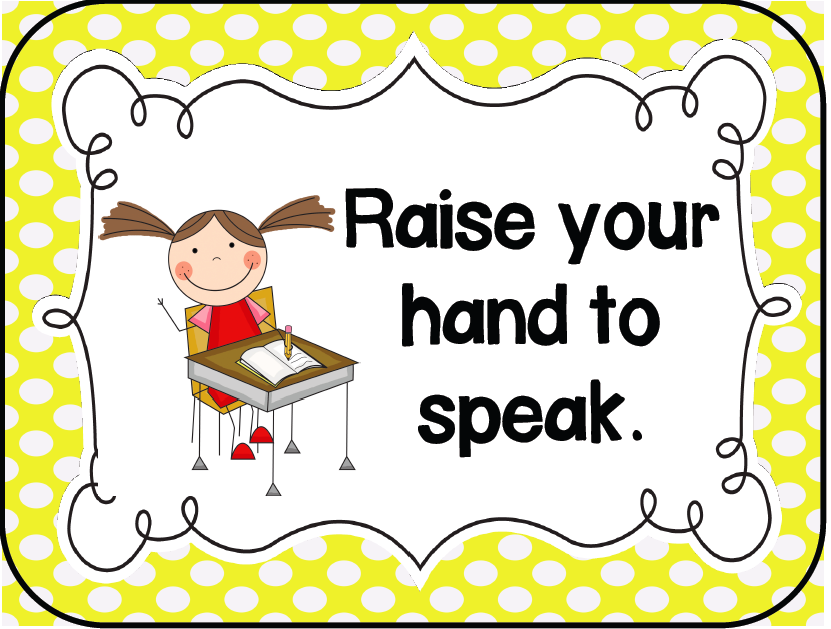 I nodded sympathetically, too. With my acknowledgment, I could see her seething anger start to dissipate.
I nodded sympathetically, too. With my acknowledgment, I could see her seething anger start to dissipate.
“Well, I understand you are upset. But that doesn’t mean I am a bad mom. If other kids are mad at you for something you have done, does it make you a bad girl?” She shook her head determinedly.
“OK, then you are not a bad girl because other people are upset. So I am not a bad mom because you are angry, right?” She nodded slowly like she was trying to absorb my words.
At that point, I went on to address her needs.
She was angry because her needs were not met. I asked her to think of other ways to get what she needed instead of calling me names. I explained to her that hurting others that way couldn’t help reduce her anger or solve her problem.
By naming and narrating my child’s emotions, I helped her understand where her anger came from, taught her vocabulary to describe her emotions, and gave her tools to solve problems. I also showed her that in conflict situations, you could still stay calm, keep a clear head and respond respectfully.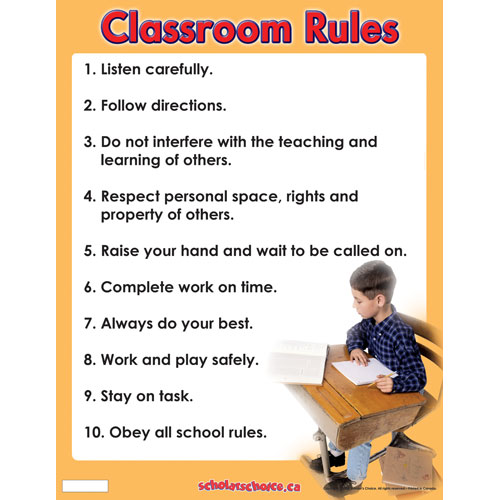
Disagreement can take place without being disrespectful.
Isn’t this much better than screaming, “How dare you!” which only addresses the parent’s own needs to feel respected?
Check out How to Deal with an Angry, Disrespectful Child for more ideas on handling the disrespect issue.
3. Model how to be respectful by respecting your kids first
What better way to teach a behavior than modeling the behavior you want to teach?
Show them how to respect by respecting them. I don’t mean calling them sir or madam, or bowing to them. Just treat your child as a person in the same way you treat other grownups.
For example, respect their preferences.
I’ve heard a father yell at his son for eating the inside of a pie first before the crust because that was the wrong way to eat a pie. True story.
It is ridiculous how some parents want to have complete control over their child’s behavior and preferences.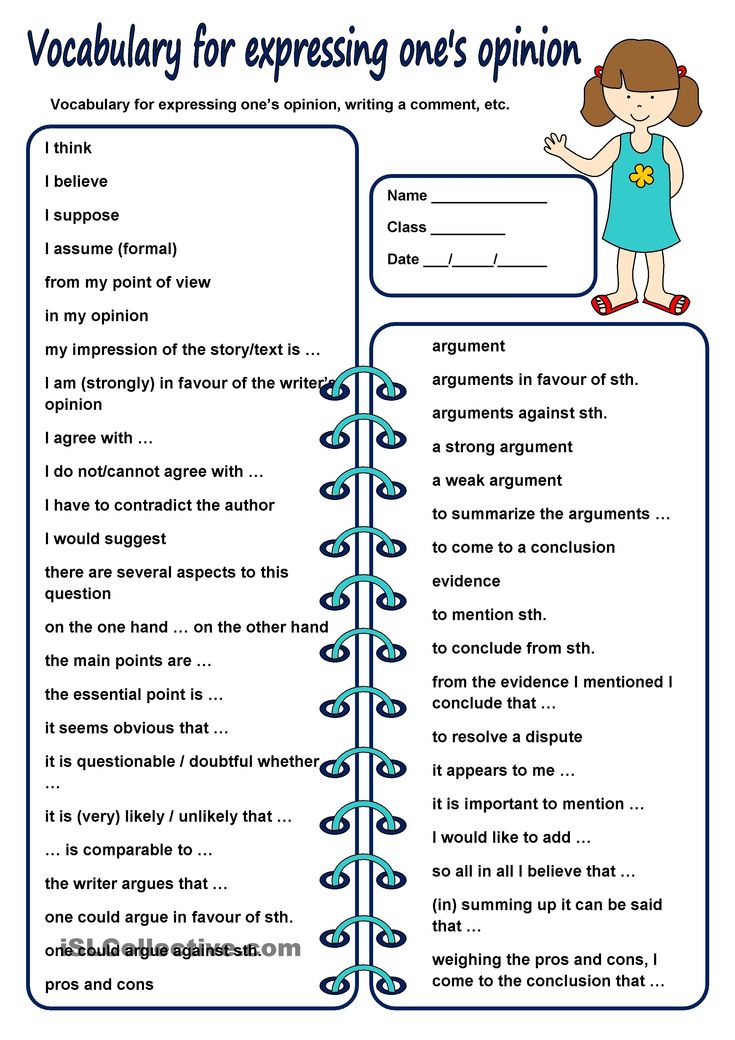 Most of us are not this extreme but we still do some variations of preference policing. But if you want your child to respect you, start with respecting their choices.
Most of us are not this extreme but we still do some variations of preference policing. But if you want your child to respect you, start with respecting their choices.
Everyone has their own preferences.
As much as I want my little one to be a mini-me and like exactly the same things I do, she is not. My child has her own liking.
If I don’t like what she wants, I will explain my rationale. But ultimately, she has to learn to make decisions for herself. As long as her choice is not a danger to safety or health, is not (too) financially consuming, and does not hurt others, I honor it.
That is why I let her make her own choices in things such as her own outfits. She often ends up going to her preschool wearing mismatched socks, pajamas under dresses, a shirt under/over a dress, etc.
Every person has the right to think independently and like different things. That should include children.
When children’s differences are accepted, they feel heard and respected.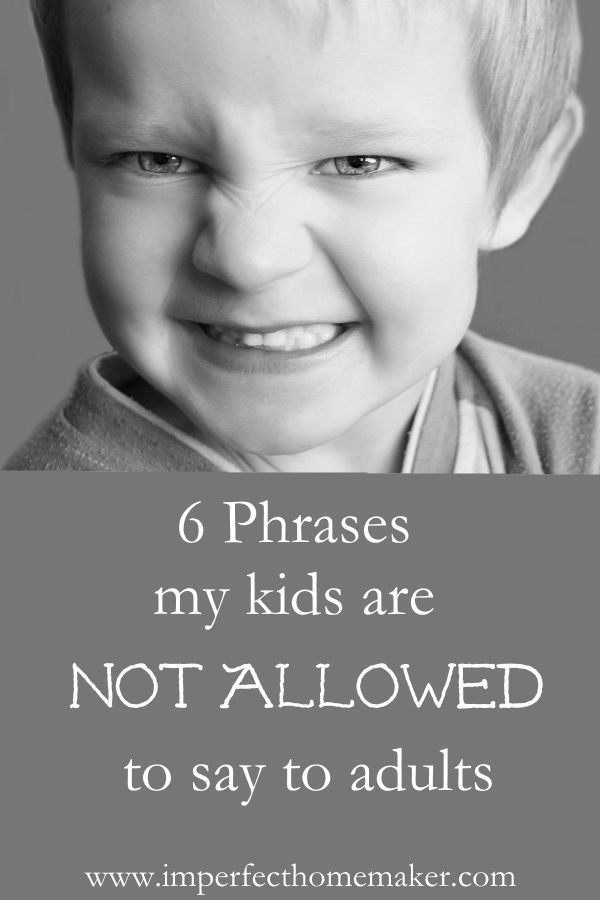 They see first-hand how to treat others who have different opinions. They learn that they should respect people despite their differences.
They see first-hand how to treat others who have different opinions. They learn that they should respect people despite their differences.
When the teenage years come, this understanding and tolerance for differences is how to get your teenager to respect you. That’s when everything Mom and Dad say will sound stupid to them. You want your teenager to know how to tolerate differences and still respect and appreciate you!
4. Use kind and firm discipline to teach, not punish
Discipline means to teach or to train. Discipline does not mean punishment. It doesn’t have to be punitive. In fact, studies have shown that positive discipline is a lot more effective and longer-lasting than punitive strategies.
If we discipline using a menacing or stern tone when our kids have done something wrong, we are showing them how to be cruel and harsh to those who make mistakes.
Who doesn’t make mistakes?
Imagine if you make a silly mistake at work and the boss talks down to you in a demeaning way.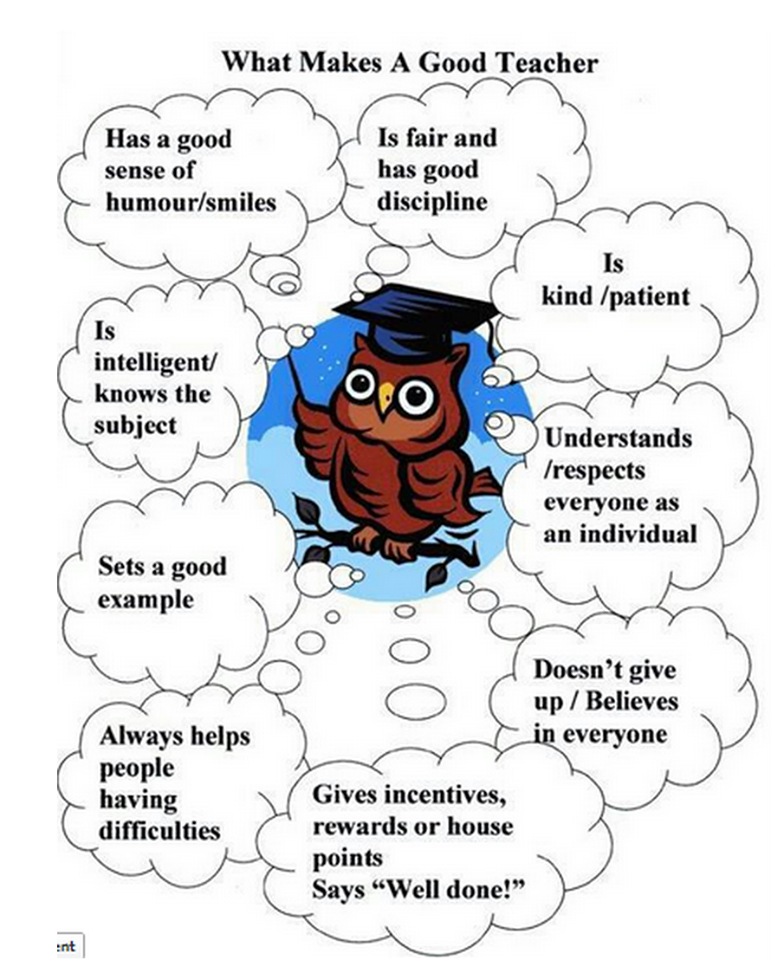 That must feel really lousy, right? Would any of us, therefore, have more respect for this boss? No, right?
That must feel really lousy, right? Would any of us, therefore, have more respect for this boss? No, right?
The same with children, being harsh or using punitive punishment will not earn us respect.
But positive discipline is not the same as being “soft” or permissive. One can be firm and kind at the same time when disciplining. Setting firm boundaries and sticking to them are the keys to successful discipline.
5. Give respect to earn respect
Parenting is one of the hardest jobs in the world. Parents spend so much effort, time, and money caring for their little ones. Their entire lives changed and started to revolve around their children the moment they were born. It is only natural that we expect kids to respect their parents.
But little children don’t understand all this. And to be fair, they didn’t ask us to do all this! We ourselves decided to take on these responsibilities.
We decided to have kids. Kids didn’t decide to have parents.
Kids didn’t decide to have parents.
If we don’t respect them but at the same time expect them to respect us, that is just hypocritical. Think about a chain smoker telling his child not to smoke. How effective is that?!
Respect cannot be demanded. It can only be earned. So, earn it!
How to earn respect?…
Give your child real reasons to respect you by being a good role model.
Model good behavior such as being respectful to everyone, including our children.
6. Apologize when you mess up
Not that I’m saying I’m never harsh to my child. As mentioned, I do sometimes shout when I’m at my wit’s end. So I get it. I understand the occasional outbursts in the heat of the moment, especially when we’re dead tired doing all sorts of grownup stuff, like working, housekeeping, and what else, parenting.
Despite that, I will never use it as the default way to treat my child, nor will I justify doing so is OK or necessary.
When I did lose it, I would give myself a time-out to calm down.
Afterward, I explained to her why I was so upset before. I taught her that having emotions was normal, but shouting was not OK. I felt guilty and I said sorry to her.
A mature, respectful grownup accepts responsibility and apologizes when he or she makes mistakes.
Apologizing to your child does not undermine your authority as a parent.
On the contrary, you are reinforcing your authority and credibility. You are demonstrating integrity and building trust with your child through your parenting style.
Final Thoughts
Treating children disrespectfully will just make them lose their respect for us (think about the mean boss example above).
If you’re lucky and your kids are not the stubborn type, you may get temporary compliance out of them, which may seem like respect.
But it is not.
Years later, when they’re all grown up, you may wonder why your grown children don’t have respect for you anymore.
They probably never did.
They were only being compliant when they were kids. And you have modeled the lack of respect well since their childhood.
Admittedly, I sometimes wondered if I should just go the “easy” route to save myself some time and frustration after telling my daughter not to make a mess a gazillion times.
But every time I was tempted to take such a shortcut, I reminded myself how I hated it when I was treated like that as a child and how it would only earn me disrespect.
“Who says parenting is easy?” With this thought, I took a deep breath, recomposed meamyself, and explained the gazillion-first time why it was not OK for her to do that.
It is certainly not easy to do everything I listed.
What really helps is understanding why we parent the way we do. Only when we self-reflect on ourselves can we model introspection to our children.
Our childhood affects how we parent no matter how much we want to deny it. Even those who have had a happy childhood may still have unresolved issues that prevent them from being the best parents they can be.
Frequently Asked Questions (FAQ)
How to get your teenager to respect you?
The steps to teaching a teenager respect are the same as those used to teach kids, as outlined above. The good thing about teenagers is that they can understand and reason better than little kids. So if you see any disrespectful behavior, calmly and politely point it out, and ask them to try again. Sometimes, they just don’t notice because that’s how they talk to their friends. The difficult part about teaching teenagers is that the adolescent stage can make them more sensitive to being disrespected. Ironic, isn’t it? But if you can stay calm and respectful when interacting with your teenager, they will eventually adopt your demeanor.
How to get kids to respect their parents?
People, including kids, naturally respect those who deserve respect. But even if someone doesn’t deserve it, we should still be respectful. That’s because our behavior reflects who we are. So being a good role model of respecting everyone, including the child, is a good way to teach kids how to be respectful to others, including their parents.
That’s because our behavior reflects who we are. So being a good role model of respecting everyone, including the child, is a good way to teach kids how to be respectful to others, including their parents.
My parents don’t respect me. What should I do?
I’m very sorry if you don’t get respect from your parents. Everyone deserves respect regardless of age. Unfortunately, this is a novel concept for some adults. But it is my belief that, even if someone treats me with disrespect, I should still be respectful, not necessarily because I respect that person, but because my behavior reflects what kind of person I am. I want to rise above those who disrespect me. I can’t say that I always succeed, but I strive to. You can, too.
Teaching Kids Respect | Teaching Children Respect
We often forget that children aren’t born with a built-in sense of respect for others. Our children need to be taught to be respectful.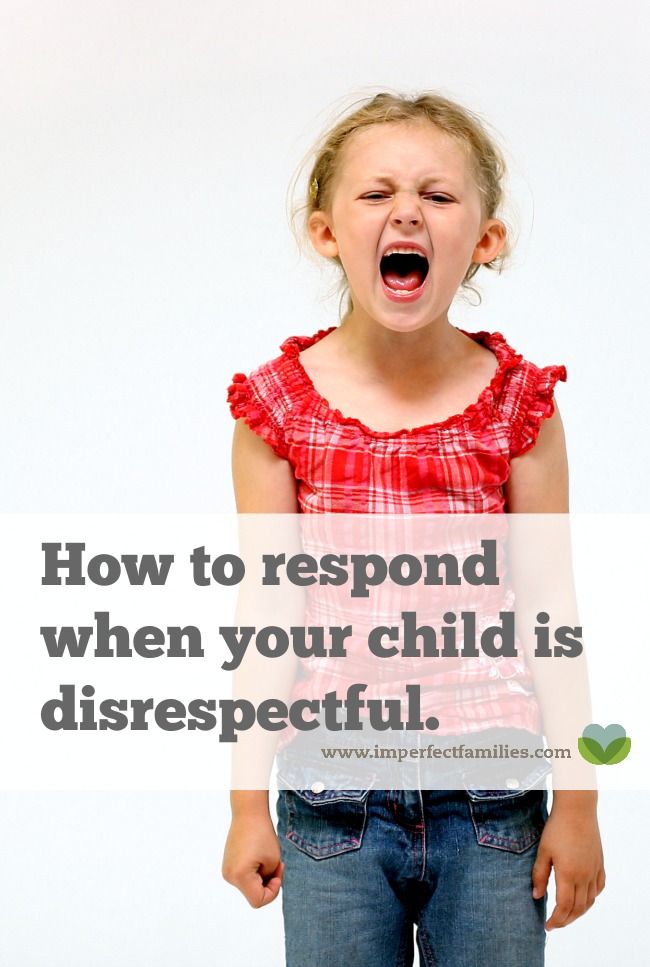
Think about it, babies are born having to manipulate their world to get their needs met, and they do this primarily by crying. Crying is natural and appropriate for babies—it’s how they communicate that they’re hungry or wet or need to be held.
But as kids get older, it’s our job as parents to teach them respectful ways of getting their needs met. And crying, manipulation, and disrespect are certainly not respectful ways to accomplish this.
Unfortunately, many kids have not been taught respect or choose not to be respectful even though they know better. Indeed, it’s common to see children and teens arguing with adults (or ignoring them outright), using foul language, copping an attitude, and not using manners or respecting those in authority. Sadly, this has become the norm for many children and teens.
In my opinion, YouTube, movies, music, and video games all seem to glorify a disrespectful, angry, rude way of dealing with others. As a result, we have to work harder as parents to teach our kids to be respectful.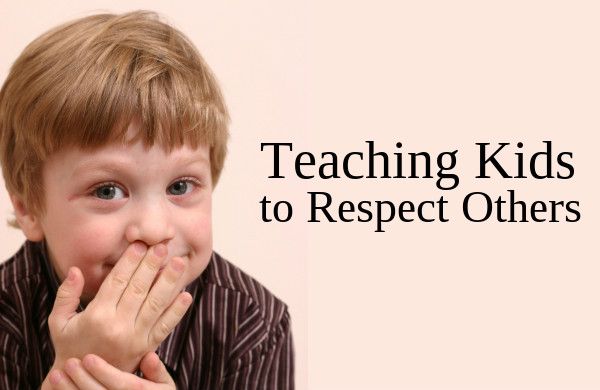
More importantly, though, many parents have not established a firm culture of accountability in their homes. Part of the problem is that parents are often busy, making it much harder to respond immediately to our kids. Let’s face it, it’s easier to let things slide when you’re worn out and stressed from working so hard.
Finally, I believe that many parents have a hard time looking at their kids in a realistic light. I can’t overstate how important it is to be willing to look at your children realistically, noting both their strengths and their areas of weakness. Being realistic allows you to see inappropriate behavior as it happens and address it—and not make excuses or ignore it.
How can you change the culture in your own home if disrespectful behavior is starting—or is already a way of life? Here are nine things you can do as a parent today to start getting respect from your kids.
1. Remember That Your Child Is Not Your Friend
It’s not about your child liking you or even thanking you for what you do.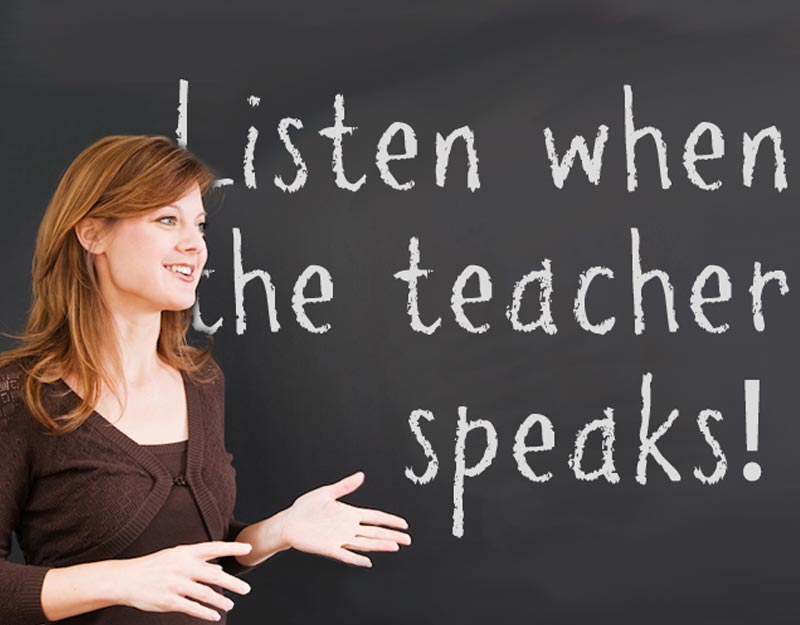 It’s important to remember that your child is not your friend. He’s your child. Your job is to coach him to function effectively in the world and behave respectfully to others, not just you.
It’s important to remember that your child is not your friend. He’s your child. Your job is to coach him to function effectively in the world and behave respectfully to others, not just you.
When you think your child might be crossing the line, a good rule of thumb is to ask yourself, “Would I let the neighbor say these things to me? Would I let a stranger?” If the answer is no, don’t let your child do it, either.
Someday when your child becomes an adult, your relationship may become more of a friendship. But for now, it’s your job to be his parent, his teacher, his coach, and his limit setter—not the buddy who lets him get away with things.
2. Confront Disrespect Early and Often
It’s good to confront disrespectful behavior early, if possible. If your child is rude or disrespectful, don’t turn a blind eye. Intervene and say:
“We don’t talk to each other that way in this family.”
Giving consequences when your kids are younger is going to pay off in the long run.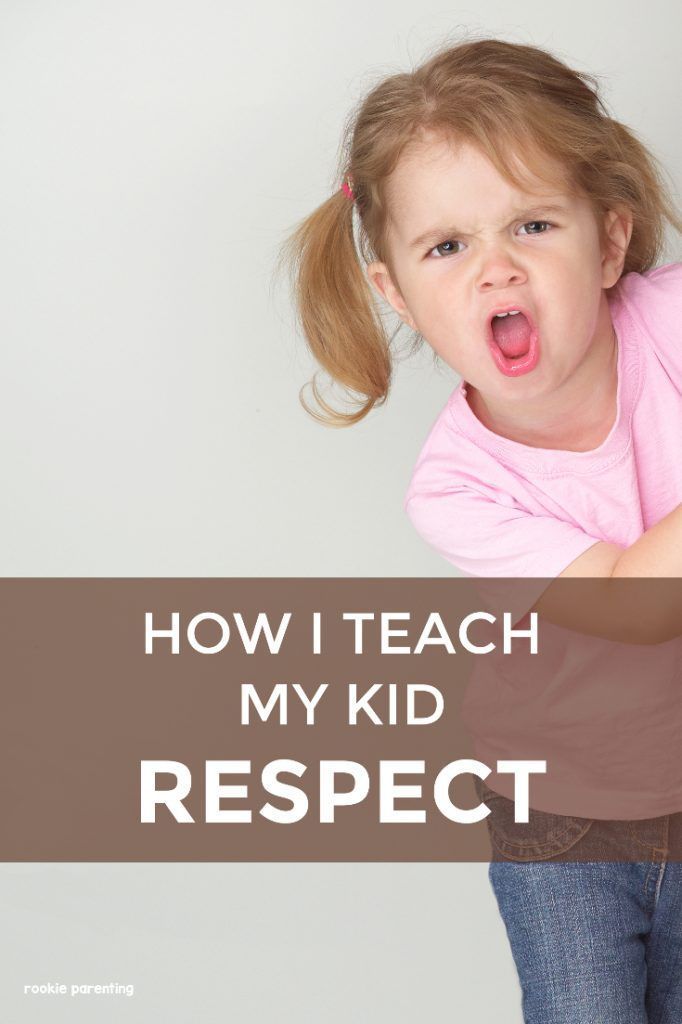 As a parent, it’s crucial that if you see your child being disrespectful to admit it and then try to nip it in the bud.
As a parent, it’s crucial that if you see your child being disrespectful to admit it and then try to nip it in the bud.
Also, if your child is about to enter the teen years (or another potentially difficult phase) think about the future. Some parents I know are already planning how they will address behavior as their ADD daughter (who is now 11) becomes a teenager. They’re learning skills to prepare for their interactions with her at a later time. This preparation can only help them as they move forward together as a family.
3. Parent as a Team
It’s beneficial for you and your co-parent to be on the same page when it comes to your child’s behavior. Make sure one of you isn’t allowing the disrespectful behavior while the other is trying to intercede. Sit down together and talk about your rules, and then come up with a plan of action—and a list of consequences you might give—if your child breaks the rules.
Related content: When Parents Disagree: How to Parent as a Team
4.
 Teach Your Child Basic Social Interaction Skills
Teach Your Child Basic Social Interaction Skills It may sound old fashioned, but it’s important to teach your child basic manners like saying “please” and “thank you.” When your child deals with her teachers in school or gets her first job and has these skills to fall back on, it will go a long way.
Understand that using manners—just a simple “excuse me” or “thank you”—is also a form of empathy. It teaches your kids to respect others and acknowledge their impact on other people. When you think about it, disrespectful behavior is the opposite of being empathetic and having good manners.
5. Be Respectful When You Correct Your Child
When your child is disrespectful, correct them in a respectful manner. Yelling and getting upset and having your own attitude in response to theirs is not helpful. Getting upset only escalates their disrespectful behavior. The truth is, if you allow their rude behavior to affect you, it’s difficult to be an effective teacher.
Instead, you can pull your child aside and give them a clear message of what is acceptable.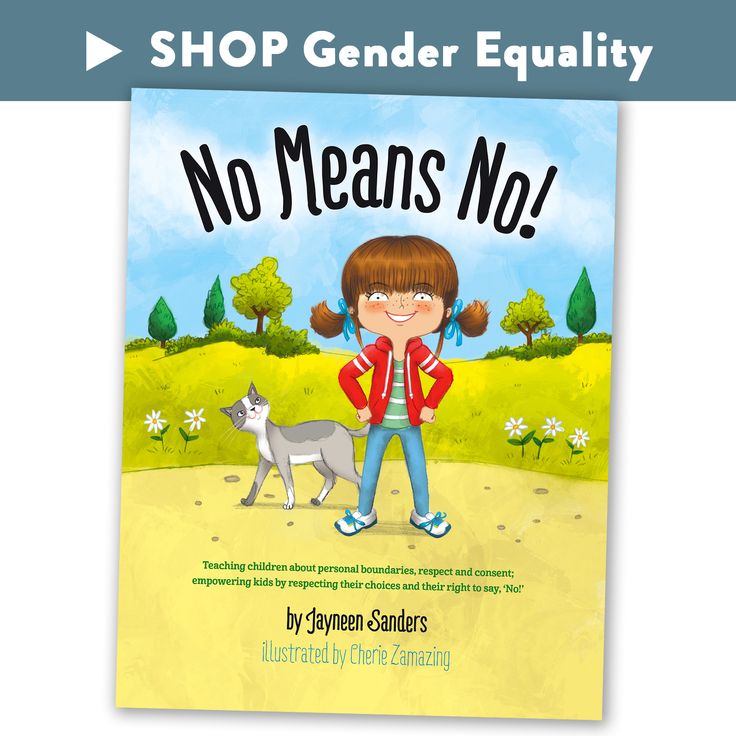 You don’t need to shout at them or embarrass them.
You don’t need to shout at them or embarrass them.
One of our friends was excellent at this particular parenting skill. He would pull his kids aside, say something quietly (I usually had no idea what it was), and it usually changed their behavior immediately.
Use these incidents as teachable moments by pulling your kids aside calmly, making your expectations firm and clear, and following through with appropriate consequences.
Related content: How to Give Kids Consequences That Work
6. Set Realistic Expectations for Your Child’s Behavior
Being realistic about your child’s behavior patterns may mean that you need to lower your expectations. Don’t plan a huge road trip with your kids, for example, if they don’t like to ride in the car. If your child has trouble in large groups and you plan an event for 30 people, you’re likely to set everyone up for disappointment, and probably an argument.
It is often helpful to set limits beforehand. For example, if you’re going to go out to dinner, be clear with your kids about your expectations. Clear expectations will help your child behave and, in some ways, will make them feel safer. They will understand what is expected of them and will know the consequences if they don’t meet those expectations. If they meet your goals, certainly give them credit, but if they don’t, follow through on whatever consequences you’ve set up for them.
Clear expectations will help your child behave and, in some ways, will make them feel safer. They will understand what is expected of them and will know the consequences if they don’t meet those expectations. If they meet your goals, certainly give them credit, but if they don’t, follow through on whatever consequences you’ve set up for them.
7. Clarify the Limits When Things Are Calm
When you’re in a situation where your child is disrespectful, that’s not the ideal time to do a lot of talking about limits or consequences. At a later time, you can talk with your child about her behavior and your expectations.
8. Discuss Disrespect When Your Child is Calm
If your child is disrespectful or rude, talk about what happened once things are calm. Talk about how it could have been dealt with differently. A calm conversation is a chance for you to listen to your child and to understand her problem better. Try to stay objective. You can say:
“Pretend a video camera recorded the whole thing. What would I see?”
What would I see?”
This is also a perfect time to have your child describe what she could have done differently.
9. Don’t Take Your Child’s Behavior Personally
One of the biggest mistakes parents can make is to take their child’s behavior personally. The truth is, you should never fall into that trap because the teenager next door is doing the same thing to his parents. And your cousin’s daughter is doing the same thing to her parents. All kids have conflicts with their parents. Your role is to just deal with your child’s behavior as objectively as possible.
When parents don’t have effective ways to deal with these kinds of things, they may feel out of control and get scared. As a result, they often overreact or underreact to the situation. When they overreact, they become too rigid. And when they underreact, they ignore the behavior or tell themselves it’s “just a phase.” Either way, it won’t help your child learn to manage his thoughts or emotions more effectively.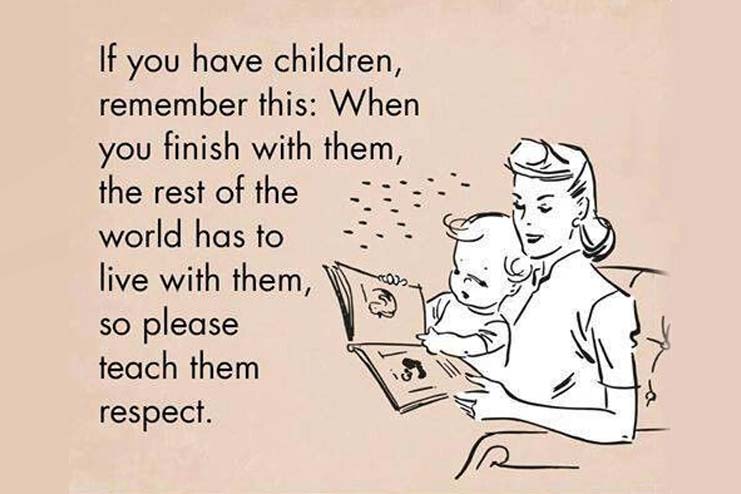 And it won’t teach him to be more respectful.
And it won’t teach him to be more respectful.
Conclusion
Understand that if you haven’t been able to intervene early with your kids, you can start at any time. Even if your child is constantly exhibiting disrespectful behavior, you can begin stepping in and setting those clear limits.
Kids really do want limits, even if they protest. And they will protest! The message that they get when you step in and set limits is that they’re cared about, that they’re loved, and that you really want them to be successful and able to function well in the world. Our kids won’t thank us now, but that’s okay. It’s not about getting them to thank us, it’s about doing the right thing.
8 simple steps to teach children to respect and hear their parents?
Naughty children: why did they not please their parents?
In order for such children to behave "normally", adults have to make efforts: to restrain, control, repeat, refuse, punish and warn. And that's the point: we don't want to strain ourselves by raising children. It would be more convenient for the child to be controlled like a toy with a remote control.
It would be more convenient for the child to be controlled like a toy with a remote control.
You tell your child: “You need to wash your face” or “Wash your hands!”, but he does not listen to you. You remind that it's time to break away from the computer and sit down for lessons, he frowns with displeasure: "Leave me alone!" - Of course, it's a mess.
Smart parents have funny, smart and obedient children. Moreover, smart and loving parents take care of this: they make sure that their children are not only smart, but also obedient. This seems obvious: if you want to teach a child to do good things, you first need to teach him to obey you elementarily.
Unfortunately, ordinary children have long been accustomed to not listening to their parents: you never know what they say! And the point here is not in the children, but in us, in the parents, when we say things that are important for us to the children somehow not seriously, not paying attention to whether the children are listening to us or not, when we put forward our demands unconvincingly.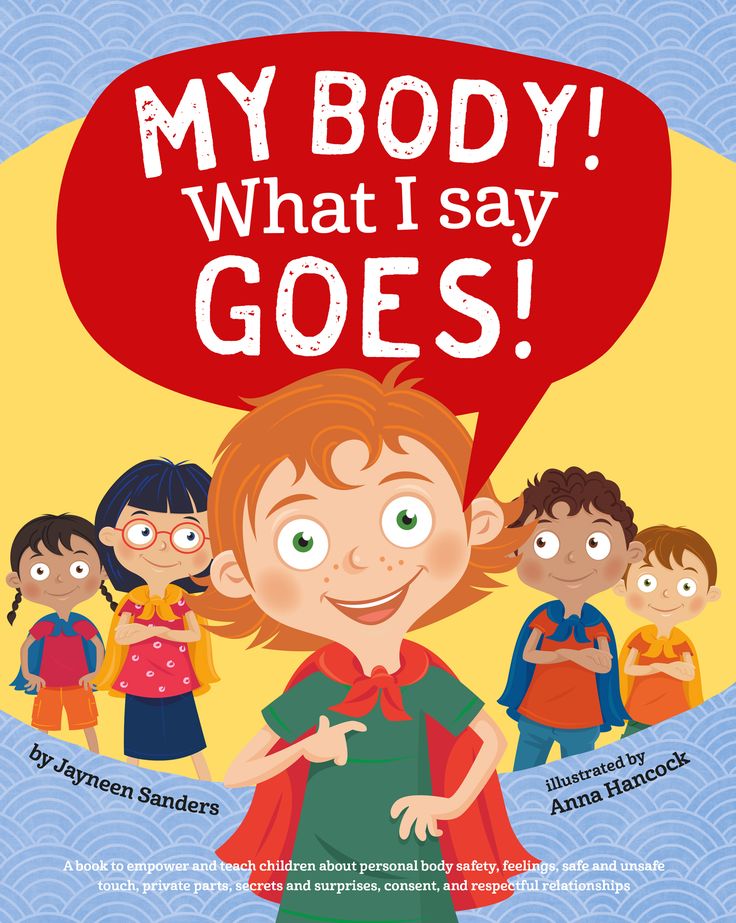
Your requests should be calm but clear instructions, sound weighty and be accompanied by control. The child must know that your words are not empty words, and if you warn that toys that are not removed are thrown away, they really disappear. If a parent approaches a child with a confident request, knowing that he has leverage, the child will respond to such a request.
But it's not just about the right wording and levers of influence, there is another important trick in building relationships with a child, namely, whether your child has a HABIT to obey you. "To obey or not to obey parents" is determined not only by what and how the parents say, it is also determined simply by the child's habits.
There are children who have the habit of mindlessly obeying everyone, and there are children who have the same habit of mindlessly disobeying anyone. Obeying "everyone" or "no one" are equally bad habits, but the habit of obeying selectively, namely, OBEYING YOUR PARENTS, is a great habit! Your children should have the habit of paying attention to what you say, the habit of doing what you ask them to. Teach your child to listen and obey you, and you will have your parental authority, you will have the opportunity to raise a developed and thinking person from your child.
Teach your child to listen and obey you, and you will have your parental authority, you will have the opportunity to raise a developed and thinking person from your child.
Is it difficult to get your children into this habit? Much depends on age: it is difficult to teach a teenager to obey his parents, it is almost impossible for many mothers, and developing such a habit in a small child is a solvable task. In principle, the sooner you begin to develop in your child the habit of listening and obeying you, the easier it will be for you.
The easiest method to help you with this is the "Eight Steps" method. Its idea is to teach your child to obey you, starting with the simplest, most elementary things, and very gradually, methodically move step by step to more difficult things. From simple to complex.
First, we do what any parent can do with any child, then we add a little, then a little more - and so we go a long way from a natural child to a well-bred child who already understands that people who are loving and more experienced than him should obey right.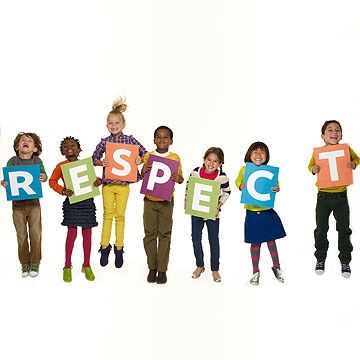
The age at which the Eight Steps algorithm works best is from 2 to 12 years. After 12 years, a well-bred child should already become your friend and helper, you are no longer so much raising him, but helping him in his self-education, helping him to solve life's tasks in the best way.
Now let's get down to business. What are these steps?
Step 1: Addition.
As the King from Antoine Saint-Exupéry's fairy tale "The Little Prince" said, controlling the sunrise is easy, you just need to know when the sunrise occurs. Say at the right moment: "Sun, rise!", and you will become the lord of the rising sun... So is the child: if the child does not obey you yet, he still does something. Go from what is, adapt to what he does, and direct his activity in the direction you need.
The child runs, you shout to him: "Well done, faster, faster!" - he happily adds speed.
Sit down at the table, you know what the child loves, what he will still reach for. Get ahead of him: "Take your favorite bread!" You said he took it.
Little Nikita likes to clap his hands. "How does Nikita clap her hands? - Clever girl, Nikita! And now, Nikita, show me how the car hums! ... Wonderful!" - you teach him to do what you tell him. He is one and a half years old, and he is already learning to listen to you and obey.
If you can't manage, take the lead. You cannot (yet) control the behavior of the child - adapt to what he does anyway, and what he wants to do himself.
Step 2: Taming: Train to come when called.
Do you know what "attach" means? The fisherman throws food into the river - he attracts fish. When an ancient man decided to tame wild dogs, he also started with affection, then he began to feed them, then stroke them, and gradually taught them to run up to him when he called them. Have you already tamed your children? Do they come running to you when you call them? If your children are still wild, start like an ancient man by taming them.
Your child likes to crunch apples or nibble cookies: your task is to make sure that access to these sweets is not free, but only through you. This is not in the vase, but you can give it to your child. Now you don’t wait until he starts begging from you, but choosing a good time, you yourself announce: “Who wants a tasty apple, quickly runs to me!”, “Cookies, cookies, delicious cookies for obedient kids.” Children run, you treat them and pat them on the head: "Well done, how quickly you run to your mother!" So the hunt has taken place - you are already accustoming children to come to you when you call them.
This is not in the vase, but you can give it to your child. Now you don’t wait until he starts begging from you, but choosing a good time, you yourself announce: “Who wants a tasty apple, quickly runs to me!”, “Cookies, cookies, delicious cookies for obedient kids.” Children run, you treat them and pat them on the head: "Well done, how quickly you run to your mother!" So the hunt has taken place - you are already accustoming children to come to you when you call them.
Invite your child to you - and praise him when he comes to you! A bait can be not only food, but everything that the child likes: and squeeze the cream on the cake, and cut the bread, and the time when you can play with the child in the games that he loves. "Mom has five minutes! Whoever comes running quickly can play hide and seek with her!" Important: if a child comes running, you reinforce it: give a bait and praise. If the child is in no hurry to run, comes later and demands, you don’t give a bait: “That’s it! It’s all over!”, but you prompt: “When mom calls, you need to run quickly!”. Teach your child to fulfill your requests, reinforcing it with joy.
Teach your child to fulfill your requests, reinforcing it with joy.
Step 3. Learning to negotiate.
Your child will be intelligent and not capricious if you teach him to use his mind. And for this, take the time to explain to the child what is good and what is bad - and teach him to negotiate. You can try to talk intelligently with a child even at two years old, and if your child is already three years old, this is already a must. Teach your child to negotiate and fulfill agreements!
You and your child are on the playground, it's time for you to leave, but the child doesn't want to leave, he wants to play more. Just command?
The child may begin to protest with a roar. What to do?
Negotiate.
The first agreement - before coming to the playground. "You want to go to the playground, but we can't play there for a long time, I will need to return home, cook dinner. You promise me that when I say that it's time for us, you won't cry, but will say goodbye to all the children and go with me home? Won't you keep me?" The second conversation is when it's time for you to leave.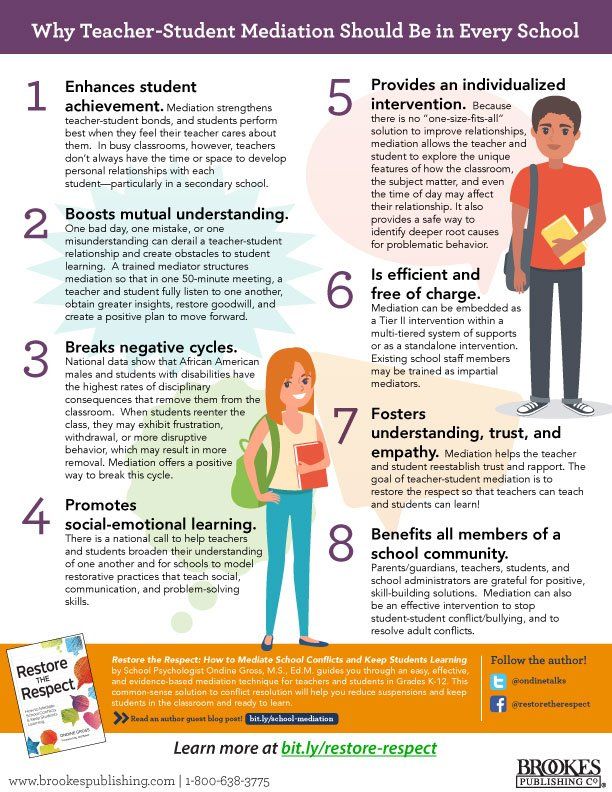 Most likely, the child will begin to whine: "Mom, I have a little more!". Here your task is to calmly cut him off from the players and discuss how to behave correctly in such a situation. “If you promised that you would not whine and cry when you need to go home, you can’t whine and cry. Otherwise, how will they believe you next time?”
Most likely, the child will begin to whine: "Mom, I have a little more!". Here your task is to calmly cut him off from the players and discuss how to behave correctly in such a situation. “If you promised that you would not whine and cry when you need to go home, you can’t whine and cry. Otherwise, how will they believe you next time?”
Here it is important that respect for agreements is supported by all close adults, there is only one position: "Agreed - it is necessary to fulfill it. And whoever does not fulfill the agreements is a violator, a whim and a small one, nothing serious can be allowed to him." We agree and do not be capricious.
Step 4: No whims.
An obedient child not only DOes what you ask him to do, he also STOPS doing what you do not like. The child tries to fight the will of his parents through his whims and tantrums, and your task at this step is to stop reacting to them in any way. Learn to do your own thing without reacting to the whims of the child - in those cases when you yourself are sure that you are right and you know that everyone will support you.
You are all hurrying to the train, packing your things. In this case, the whims of the child "Come play with me!" will be easily ignored by everyone, including grandmothers. Teach your child that there are important things to do. Teach your child to say, "This is important." If you sat down in front of him and, looking into his eyes, holding his shoulders, calmly and firmly say: "Adults now need to get together, and we will play with you later. This is important!" - then soon the child will begin to understand you. It is important!
Step 5: Requirements.
Your child already quickly comes running to you when you call him with something tasty, he stopped being capricious and no longer throws tantrums. As a rule, he will do what you asked him to do, but he is not yet used to the fact that you can seriously demand something from him. Requests are soft, while demands are hard and mandatory. Is that the way to listen? At this step, again act consistently, but carefully, at first demand a minimum and only when everyone supports you.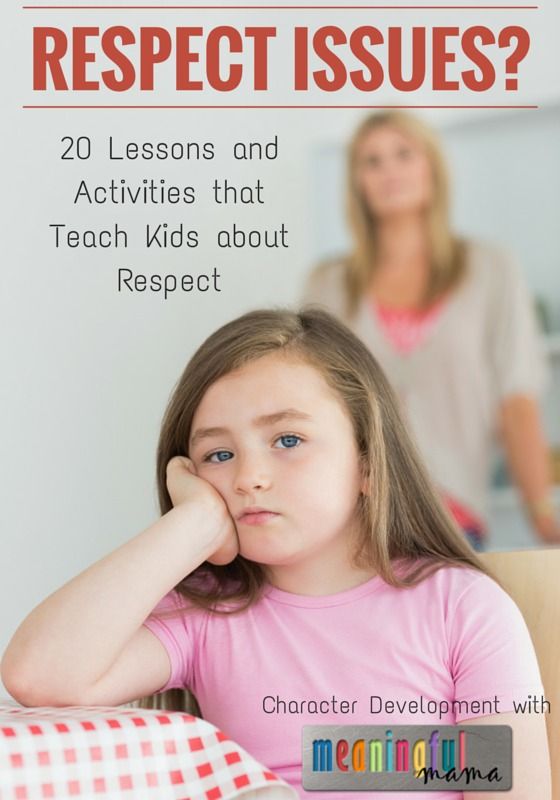
The child is already old enough to... In order not to take a toy from someone else's child, to pick up a fallen mitten yourself, to put porridge in your mouth yourself... - Always look for those moments when your demands will be supported by everyone around you, so that even the grandmothers at least kept silent.
If you have too many demands on your child, if he does not keep up with your numerous demands, or if you do not have the support of others, do not push. Like politics, education is the art of the possible. Napoleon himself taught his commanders: "Give only those orders that will be carried out."
Nevertheless, gradually remove the bait as something obligatory, start calling the child already without rewarding him with something tasty. It's time to teach the child that if mom (especially dad) is his name, you need to come simply because he was called. If he doesn’t go right away, they repeated it, but achieved it. And now they drew his attention to the fact that you had to wait for him, and asked him to come when his mother calls. No need to swear, just say: "When mom calls, you need to come right away!" - and kiss! Slowly, your child will begin to learn it.
No need to swear, just say: "When mom calls, you need to come right away!" - and kiss! Slowly, your child will begin to learn it.
Step 6: Responsibilities.
Requirements are one-time, while duties are a system of permanent requirements for a child. The time has come to teach the child that each member of the family has his own responsibilities, and he must participate in family affairs on an equal basis with mom and dad. Having explained this to the child, begin to confidently give him tasks, but also act gradually here: let him first choose his duties according to his strength, let him do what is not difficult for him, or, all the more, even want a little.
This step is more difficult for mothers than for children. Moms really want to do everything themselves and not strain the child. So, dear mothers and, in principle, parents, make sure that the child always has things to do at your request. The child should not fade away the understanding that he has tasks, and he must do it. Clean up the bed, take away the cup, wash the dishes, run to the store - most likely, it’s easier and cheaper for you to do it all yourself, but you are educators, so your task is to restrain yourself, not to do it yourself and entrust it to the child every time .
Clean up the bed, take away the cup, wash the dishes, run to the store - most likely, it’s easier and cheaper for you to do it all yourself, but you are educators, so your task is to restrain yourself, not to do it yourself and entrust it to the child every time .
At first, the child has to be reminded of his duties, after a while the duty to remember should fall on the child himself. Remembering your responsibilities is also the responsibility of the child!
Step 7: Self-reliance.
When a child already knows what duties are, it's time to teach him to be independent. The ability to obey is the basis of smart independence. The independence of an obedient child lies in the fact that you can already give him difficult tasks in the confidence that he will complete them completely on his own, without your help and prompts. It’s not just “Go to the store” or “It’s your responsibility to take out the bucket”, but “Pack up all the things you will need on the trip”, “Grandma needs help digging up a garden in the country”, “Toothache? Call the clinic, Find out when the doctor is, go and get your teeth fixed. " As usual, not everything will turn out right away, at first the child will need your tips, help and support, but the more often he begins to successfully cope with difficult assignments, the faster he will wake up a taste for independence. So, move from simple to complex, from dense, frequent and specific clues to rare and general clues, and thus gradually move on to more and more difficult and independent tasks, mostly on the most positive background, with small irregular reinforcements and rare large ones.
" As usual, not everything will turn out right away, at first the child will need your tips, help and support, but the more often he begins to successfully cope with difficult assignments, the faster he will wake up a taste for independence. So, move from simple to complex, from dense, frequent and specific clues to rare and general clues, and thus gradually move on to more and more difficult and independent tasks, mostly on the most positive background, with small irregular reinforcements and rare large ones.
Ideally, if you go somewhere for a relatively long time, your child should be able to live without you without major problems. He is already on his own!
Step 8: Responsibility.
Well, the last step remains: responsibility. Women do not really like the word "responsibility", they are closer to "caring", but there is a difference between these words: a caring person pays only with efforts and soul, and a person responsible for his mistakes pays really. If you entrust a child with a responsible task, for this, in the event of a puncture, either the child or you will have to pay.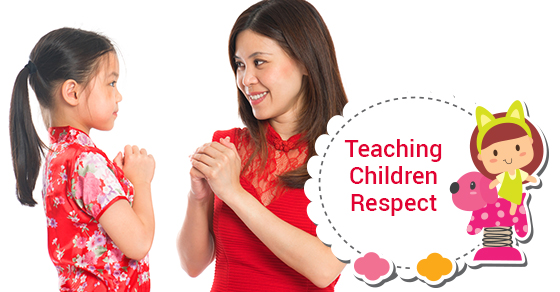 But children grow up, it's time to acquaint them with responsibility, and now you entrust the child with not just deeds, but responsible deeds: those for which you need to answer to other people or, simply, pay for mistakes.
But children grow up, it's time to acquaint them with responsibility, and now you entrust the child with not just deeds, but responsible deeds: those for which you need to answer to other people or, simply, pay for mistakes.
You instructed a child to place an expensive service on the table. Or put money in the bank. Or - to bring a little sister from the kindergarten ... Will she not break it? Will not lose? Will not forget?
When taking on a responsible task, the child already knows the price of a mistake, and treats the assignment responsibly: he will think everything over, remember, follow up and check, and he will definitely report back to you at the end.
When a child learns this too, you can be proud - you are already an adult. You have raised an adult, responsible person! Remember, it all started with quiet, neat outbuildings to a completely naughty child?
Of course, and after that no one will promise you that your children will become angels and will never disobey you.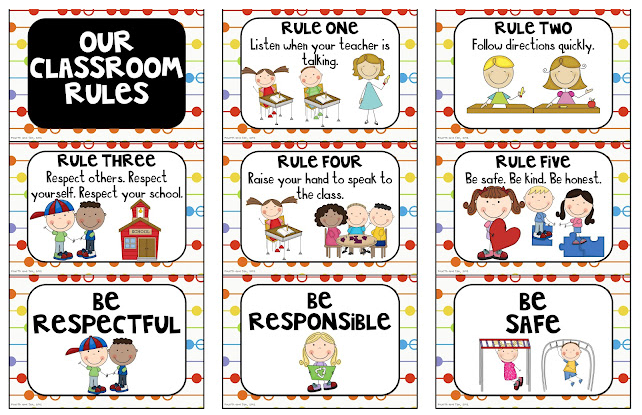 Everything is possible, our children do not always obey us. Sometimes it happens by accident, sometimes on purpose. How to react to it? Calmly. If you act wisely, you will solve this issue without difficulty.
Everything is possible, our children do not always obey us. Sometimes it happens by accident, sometimes on purpose. How to react to it? Calmly. If you act wisely, you will solve this issue without difficulty.
By the way, is there anything after the eighth step, after the formation of responsibility in the child? Your child is not only ready to fulfill your requests, he knows his duties, he is a completely independent and responsible person. And it's all? Is there anything else we want to give our child? Tell me, when and how will we set the task so that our children grow up as loving people?
Should children listen unquestioningly to their parents?
There can be no unequivocal answer to this question precisely because parents are different. There are parents - alcoholics, there are - smart and loving. If we talk about smart and loving parents, then our answer will be positive: yes, children should obey such parents implicitly. Why? What for? Because smart and loving parents love their children and will never demand from their children what will be harmful to children. Such parents love to just talk to their children, spend time with them - and listen to what the children share with them. You don’t often hear demands on your children from them, and they demand only what is really necessary.
Such parents love to just talk to their children, spend time with them - and listen to what the children share with them. You don’t often hear demands on your children from them, and they demand only what is really necessary.
5 years old: when going out on the road, you need to take your mother by the hand and not play around here. 10 years: first lessons, then computer games. 15 years: at 22.00 - sleep!
Usually they don't even demand it, but gently ask, rather suggest and remind, and this is enough.
How to teach a child to respect adults
home
Parents
How to raise a child?
How to teach a child to respect adults
- Tags:
- Expert advice
- 1-3 years
- 3-7 years
- 7-12 years
- teenager
Many grandparents, mothers and fathers have been asking the question “What happened to the current generation? Why don't young people respect adults? I won’t take responsibility for arguing whether this is really so, and whether there was “before” the average statistical indicator of politeness in the country or not .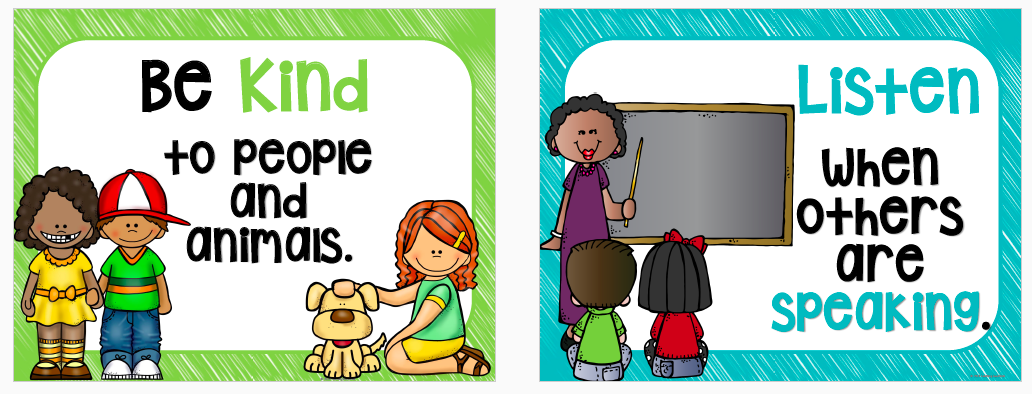 .. But I can say with confidence that for one impolite and disrespectful child, there is at least one, the same impolite adult.
.. But I can say with confidence that for one impolite and disrespectful child, there is at least one, the same impolite adult.
It turns out that if your child does not show respect for adults, then probably you yourself do not treat others with reverence. What is respect and where to start when raising a child?
Respect is the position of one person in relation to another, expressed in recognition of his merits . This means that the child must see and be able to recognize that every person has dignity, that he himself has it.
Family
We must start with the family. And, first of all, from myself. Showing your child that you respect him and his opinion, you take a huge step towards ensuring that he himself is happy to show respect for you. To achieve this goal explain to the child what and why you are doing, let him understand the causal relationship: “We do not make noise in the room after 10 pm, because the brother/dad/grandmother/neighbors are sleeping, and we respect their right to rest”, “ I ask you to put things in their places, because we all appreciate and respect each other's work.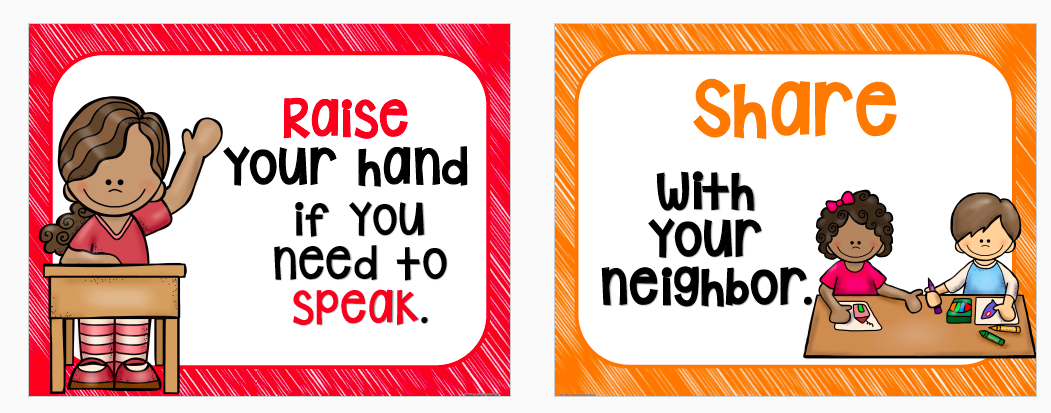
In addition, for mutual respect a very important factor is observance of the boundaries of each family member. If you want your child to knock on your door before entering, knock on his door as well. A child, just like an adult, has the right to personal time and space.
Showing respect and care for your partner shows your child a significant life lesson. Observing how respect is shown in his family, the child forms a picture of HOW it really works. The parents of a boy who watches his father help put on his mother's coat and open doors for her are unlikely to be called to school because of trips to classmates and frogs in a briefcase.
Personal example and rules
Important show by example showing respect and gratitude to the people around.
Teach your child to say “please” to the seller, explain why it is necessary to say “thank you” to the waiter, why you need to apologize if you accidentally hit someone or stepped on your foot.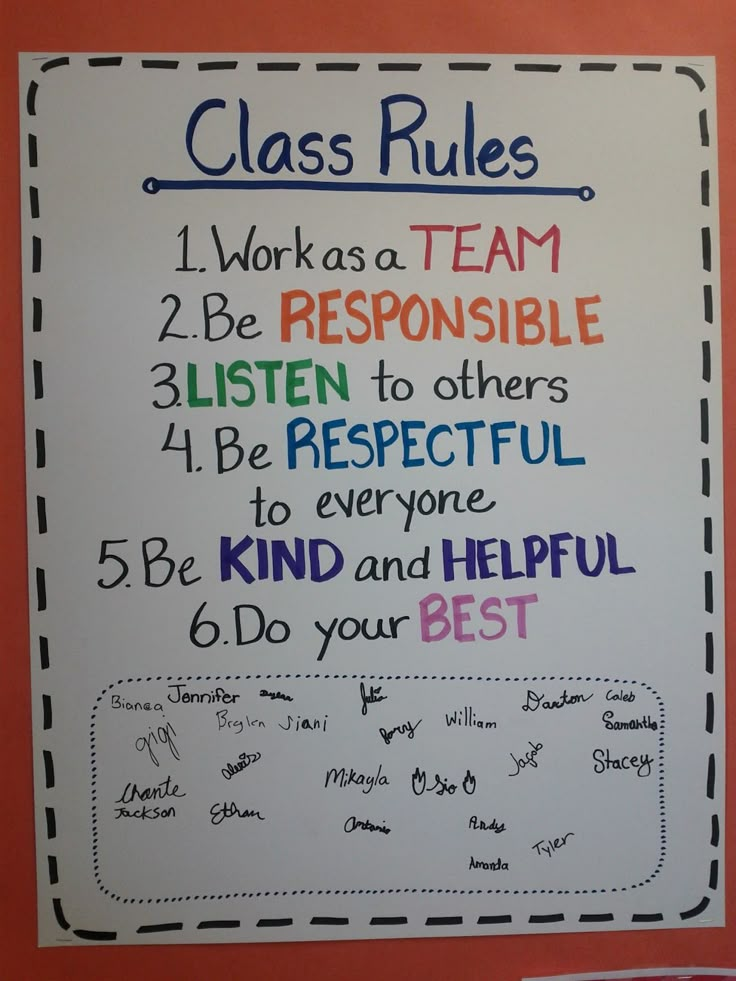 And most importantly, do not just explain, but show it by your own example.
And most importantly, do not just explain, but show it by your own example.
Tell me that discussing people is bad manners. If you need to say something, then only to the one who is meant to hear it. And adults in general should be “untouchable” in this matter. And don't forget to follow these rules yourself.
Make a list of things that are strictly forbidden to do: parents, grandparents, educators, teachers and neighbors must not be impudent, you must not swear with obscene words, and so on. There are things that are absolutely impossible to do, and there are those that are undesirable to do - your child should learn this from early childhood.
If you demand something from a child that you yourself do not adhere to, he will soon have a well-founded sense of injustice and resentment.
Explain to the child the rules of etiquette. Knowledge of etiquette is not born, it comes in the process of socialization and parents should teach it, not kindergarten or school, although, of course, both school and kindergarten have a tremendous influence.